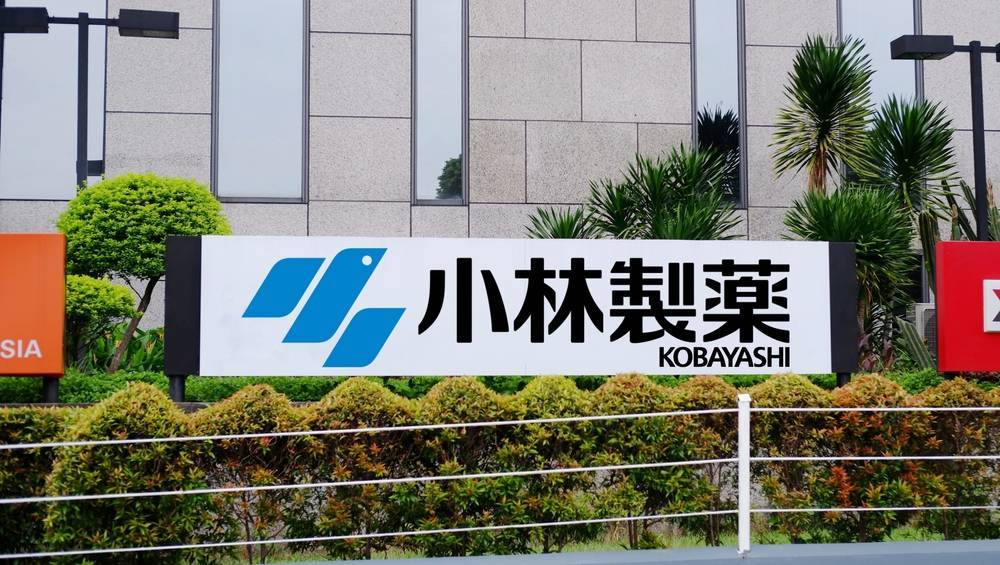A major health scare has erupted in Japan a a dietary supplement has been linked to 80 deaths.
The company has initiated a recall amidst growing concerns about the safety of its cholesterol-lowering product, which contains red yeast rice.
Rising Death Toll and Initial Recall
The crisis began earlier this year when Kobayashi Pharmaceuticals reported five deaths potentially linked to CholesteHelp. This number has since surged to 80, with the supplement now under intense scrutiny.
The company initially recalled three of its supplements in March, including CholesteHelp, after 106 customers were hospitalised due to kidney issues. The recall has since expanded as more cases come to light.
Government Intervention and Public Concern
The Japanese government has responded swiftly to the crisis surrounding the CholesteHelp supplement. Prime Minister Fumio Kishida addressed the parliament, emphasising the urgency of identifying the cause of the illnesses and the need for appropriate actions to safeguard public health.
Health Minister Yoshimasa Hayashi held a media conference, urging Kobayashi Pharmaceuticals to expedite their investigation and disclose all relevant information to the public. The government’s intervention highlights the seriousness of the situation and the widespread concern among the public, as fears about the safety of dietary supplements escalate.
The Role of Red Yeast Rice in CholesteHelp
CholesteHelp contains red yeast rice, an ingredient known for its cholesterol-lowering properties. Red yeast rice, or “beni koji,” is fermented with the mould Monascus purpureus.
Red yeast rice, traditionally used in East Asian cuisine, can produce the toxin citrinin during fermentation. Citrinin links to kidney damage, raising safety concerns. Kobayashi Pharmaceuticals claimed their analysis didn’t detect citrinin but acknowledged possible unintended harmful substances in their products.
Expansion of the Recall and Further Investigations
As the death toll linked to CholesteHelp rose, Kobayashi Pharmaceuticals expanded their recall to include more products containing red yeast rice. The company reported that it supplies red yeast rice to approximately 50 firms in Japan and two in Taiwan, raising concerns about the widespread distribution of potentially harmful products.
In addition to the recalled supplements, over 40 products from other companies, including miso paste, crackers, sake, bread, and vinegar dressing, were also recalled. This extensive recall highlights the potential severity of the issue and the urgent need for thorough investigations.
International Impact and Precautionary Measures of CholesteHelp recall
The repercussions of the CholesteHelp scare have extended beyond Japan. Health authorities in Taiwan have preemptively recalled 154 products containing red yeast rice. Online sales of affected products have been suspended in China, and similar products have been pulled from shelves in several other countries.
The Japanese government is collaborating with the World Health Organization and relevant international bodies to manage the crisis and prevent further harm. Kobayashi Pharmaceuticals is under intense scrutiny as the global health community watches closely.
Ongoing Investigation and Company Accountability
Kobayashi Pharmaceuticals continues to investigate the deaths and illnesses linked to CholesteHelp. The company has received over 1,650 inquiries from concerned individuals, with 76 additional deaths currently under investigation.
Despite rigorous analysis, Kobayashi has yet to pinpoint the exact cause of the health issues. This includes whether organs other than the kidneys were harmed. The firm has acknowledged the detection of a potentially toxic acid at one of its factories, which may have contributed to the adverse effects. Government officials have demanded daily reports from the company to ensure transparency and accountability as the investigation progresses.
Broader Implications for the Supplement Industry
The CholesteHelp crisis spotlights the broader supplement industry, raising questions about safety standards and regulatory oversight. Critics argue that relaxing current safety frameworks under former Prime Minister Shinzo Abe may have contributed to oversight lapses, allowing potentially harmful products to reach consumers.
The Japanese government is now considering stricter regulations to prevent similar incidents in the future. This scandal emphasises the need for rigorous testing and quality control in the supplement industry to protect public health.
Consumer Trust and Future Outlook
The CholesteHelp scandal has severely impacted consumer trust in Kobayashi Pharmaceuticals and the broader supplement industry. Many consumers are now wary of over-the-counter supplements, especially those containing red yeast rice.
Kobayashi’s reputation, built over years as a household name in Japan, has suffered significant damage. The company faces a challenging road ahead to regain public confidence. Moving forward, it will be crucial for both manufacturers and regulators to implement stricter safety measures and ensure transparency to rebuild trust and safeguard public health.
References
1. Cna. (2024, June 28). Japan firm says probing 76 more deaths in supplement scare. CNA. https://www.channelnewsasia.com/east-asia/japan-kobayashi-pharmaceutical-deaths-red-yeast-rice-investigations-ongoing-4442646

